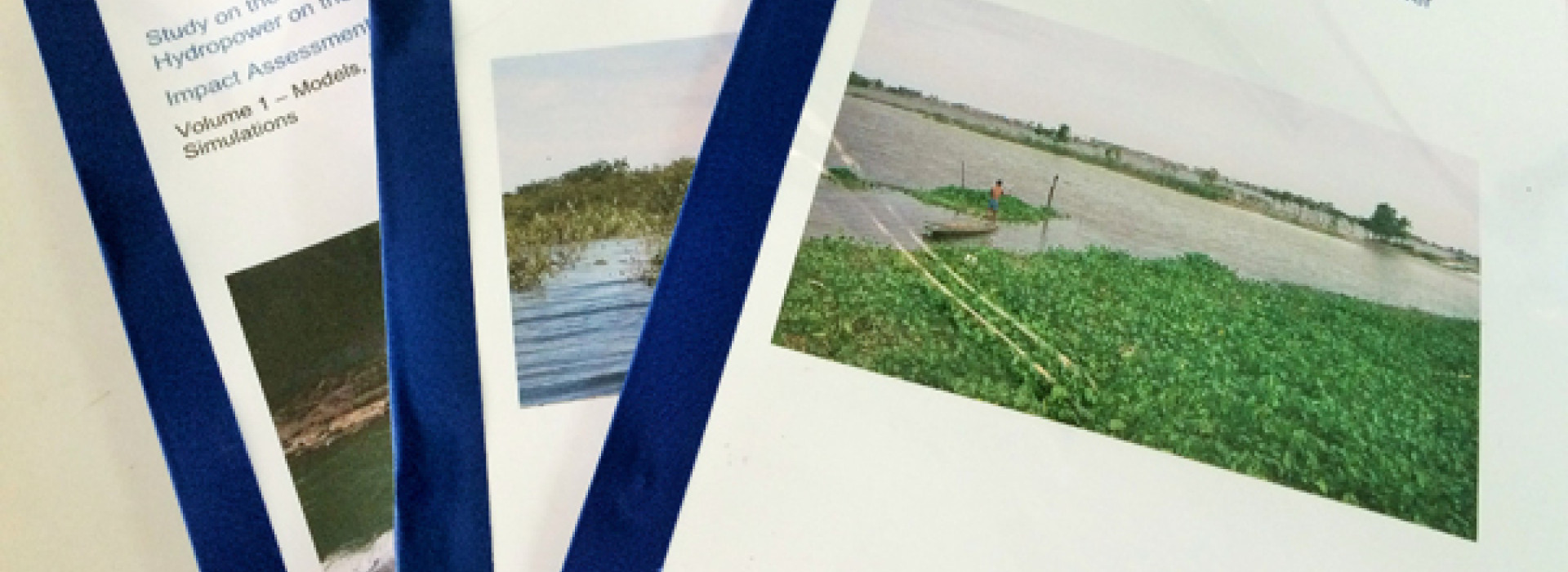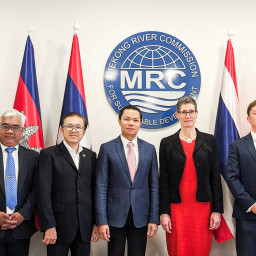MRC to Review Viet Nam’s Mekong Delta Study on Hydropower Development
Vientiane, Lao PDR, 4 April 2016 — The Mekong River Commission will review the results of a comprehensive study by Viet Nam on the impact of hydropower development on the Mekong Delta with a view to link it with the MRC’s flagship study on the sustainable development in the region, said the MRC Secretariat CEO Pham Tuan Phan.
The MRC has received the final report of the Study on the Impacts of the Mainstream Hydropower on the Mekong River, so-called Delta Study, from the Viet Nam’s Ministry of Natural Resources and Environment.
The Mekong Delta is home to some 20 million people and more than 50 percent of Viet Nam’s rice and fruit production. The 94-page final report, together with the two volumes of the impact assessment reports (800 pages), was results of the 30-month study that assessed the impact of 11 hydropower projects proposed on the Lower Mekong mainstream on the natural, social and economic systems of the Lower Mekong Basin, in particular Mekong Delta.
In the final report, the Delta Study suggests that if no mitigating measures are taken, the planned mainstream hydropower projects would cause “high to very high adverse effects on some of the key sectors and environmental resources in Cambodia and Viet Nam”, according to the report. The study was conducted by Denmark’s DHI Group together with experts from Vietnam. Specialists of Cambodia and Lao PDR also joined the implementation of the study while the MRC and governments’ agencies provided scientific data.
“I would like to express our appreciation to MRCS for excellent support and cooperation,” wrote H. E. Nguyen Minh Quang, Minister of Viet Nam’s Natural Resources and Environment and Chairman of the Viet Nam National Mekong Committee, in his letter to the CEO Pham. “I believe that the Study outcomes would be extremely helpful in our joint efforts to bring (the MRC’s) Council Study to satisfactory completion.”
The Council Study, or the Study on Sustainable Management and Development of the Mekong River including Impacts of Mainstream Hydropower Project, is the MRC’s flagship study commissioned by the MRC Council in late 2011. It assesses how different water resources use will impact the river basin, using various development scenarios for several themes including hydropower, irrigation, agriculture, flood protection and navigation. Together with the Delta Study, it is expected to provide a scientific evidence-based data for better understanding about potential risks and benefits of development initiatives in the Lower Mekong Basin.
“We are pleased to receive the final report of the Delta Study, to which we have contributed,” said CEO Pham. “We will review the final report and see how the Delta Study could be linked to our Council Study. We believe that the two studies are complementary, and that it would help us validate our study on the impacts of the development initiatives in the region.”
The Council Study is expected to be completed in 2017.
Note to editors:
The MRC is an intergovernmental organisation for regional dialogue and cooperation in the Lower Mekong River Basin, established in 1995 based on the Mekong Agreement among Cambodia, Lao PDR, Thailand and Viet Nam. The Organisation serves as a regional platform for water diplomacy as well as a knowledge hub of water resources management for the sustainable development of the region.
-END-





